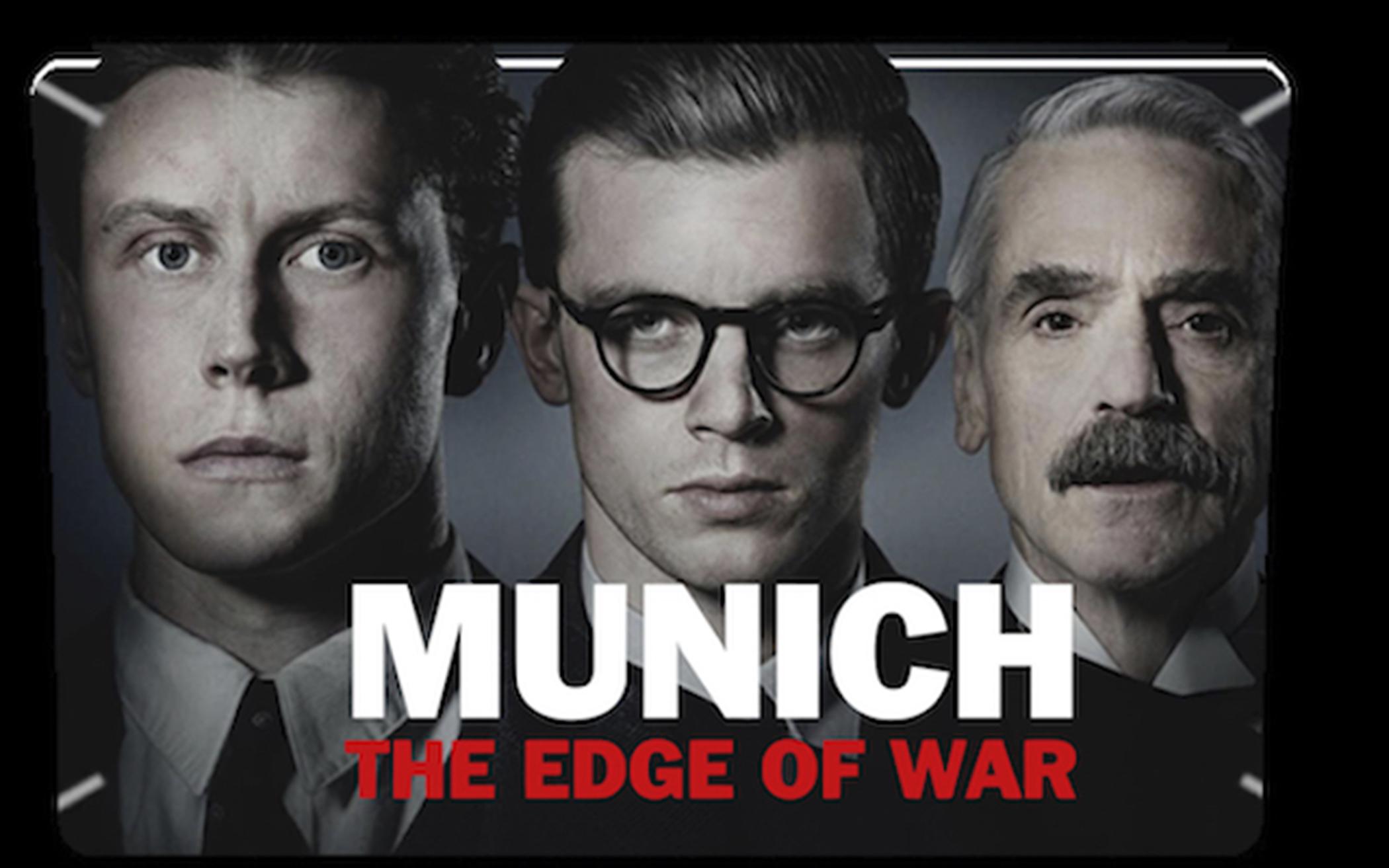Thanks to the 24-hour news cycle making us feel informed and social media making us feel that we all have the responsibility to speak to world events, it can be difficult to put other eras into context. Munich: The Edge of War is set in 1938, when earth-shattering events still took place behind closed doors and messages were delivered by hand. What might it have been like to know what was looming in Europe during those tense times? How would it feel to carry the message or weapon that could change the course of history?
We know going into this story that despite the characters’ best intentions they will not prevent the Second World War. So what director Christian Schwochow must do is make us sympathize with the men who saw war coming and believed they had the means to stop it. Whether or not he succeeds depends on how much we can place ourselves in their position and surrender to the moment.
Hugh Legat (George MacKay) and Paul von Hartman (Jannis Niewöhner) first met as students at Oxford, where they, along with Paul’s girlfriend Lenya (Liv Lisa Fries) formed a close bond. When Hugh visits them in Munich after graduation, he and Paul have a falling out over the rise of the “New Germany.” Paul appreciates Hitler’s (Ulrich Matthes) rhetoric, while Hugh has questions. Lenya, a Jew, is caught in the middle.
Several years later Hugh is working as Neville Chamberlain’s (Jeremy Irons) secretary. The prime minister believes that he can reason with the Führer, even if it means going behind the back of Parliament and working through the Italians. Meanwhile, Paul has had a change of heart. He’s a spy in Hitler’s office. In his possession is a document that shows Hitler’s intentions, regardless of whatever treaties he’s offered. Through a series of convenient events, Hugh and Paul are forced to work together to get this information to Chamberlain and convince him that Hitler cannot be trusted. All under the nose of the Nazis.
We never know where God will place us or what role we are meant to play. In Paul’s letter to the Ephesians he reminds us, “For we are God’s handiwork, created in Christ Jesus to do good works, which God prepared in advance for us to do” (Eph 2:10). Perhaps, like Queen Esther, we will be put in positions of great influence to save thousands of lives “for such a time as this” (Esther 4:14).
Ultimately, except for some nuanced performances from Matthes and Irons, Munich often comes off as unexceptional Netflix content to feed the machine. Moments of melodrama and R-rated language subvert what clearly wants to be a cloak-and-dagger story. Still, for two hours we are allowed to ask ourselves, “What if I had the key to changing the world and no one would listen?” Sometimes all we can do, like Hugh, is go back to our own four walls and try to make our world and home a better place. (Netflix)
About the Author
Trevor Denning is an alumni of Cornerstone University and lives, lifts weights, and spends too much time in his kitchen in Alma, Mich. His first short story collection is St. George Drive and Other Stories.

